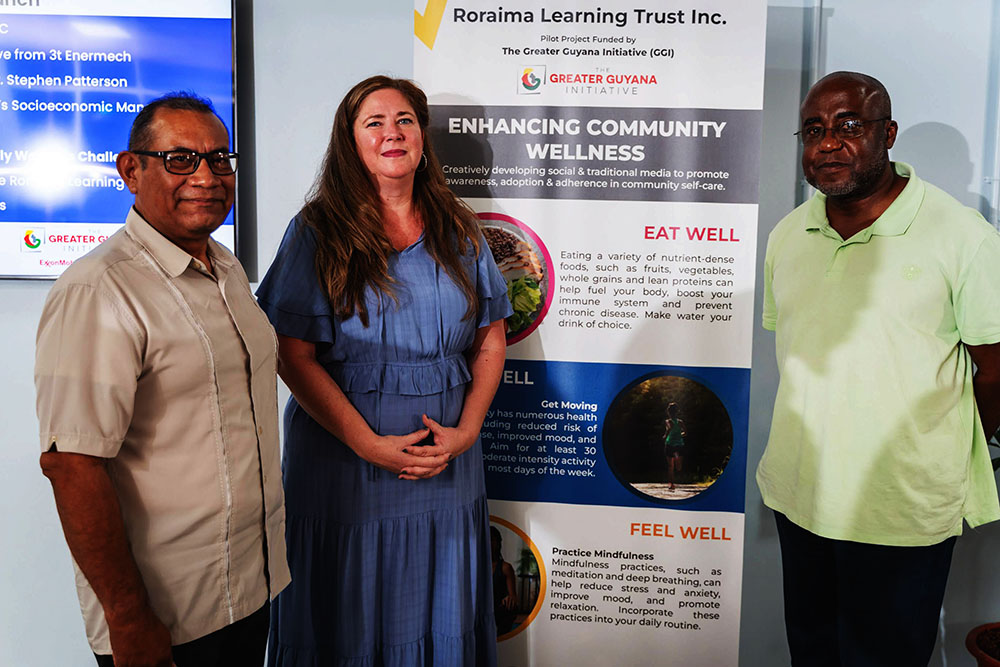Some 150 persons are set to benefit health wise from a project that seeks to tackle the incidence of chronic health conditions.
A release yesterday from the Greater Guyana Initiative (GGI) informed that it is funding an Enhancing Community Wellness Project, which aims to reduce the prevalence of chronic health conditions in 150 participants. It was officially launched on August 30, at 3t EnerMech, Lusignan, East Coast Demerara.
It added that the project is being led by the Roraima Learning Trust (RLT) and aims to reduce the prevalence of chronic health conditions such as diabetes and hypertension by encouraging participants to adopt and adhere to healthier lifestyles. Participants will be encouraged to consume healthy foods, lead an active lifestyle and monitor their physical health.
This will be achieved by providing relevant dietary and lifestyle information through convenient and accessible platforms and also utilising the Neighbourhood Democratic Councils (NDCs) and healthcare networks.
The release noted that GGI is a US$100 million, 10-year investment made by the Stabroek Block partners ExxonMobil Guyana, Hess Guyana Exploration Limited, and CNOOC Petroleum Guyana Limited. It is geared towards development of the local workforce, building human capacity, advancing education and improving healthcare, all in an effort to promote sustainable economic diversification for a growing Guyana.
Socioeconomic Manager at ExxonMobil Guyana, Susan Scott, stated, “We believe that healthy citizens are the greatest asset any country can have and that is why we were keen on supporting this project with the Roraima Learning Trust which aims to encourage citizens to eat well, move well and feel well.”
Meanwhile, Project Manager for Roraima Learning Trust, Stephen Patterson, stated that they have already seen positive results from this project and he encouraged all the participants to continue to use and share the information. “The whole idea is to use the information that we’re sharing, that they can use it for their own benefit, the benefit of their family, communities and by extension, the country as a whole.”
And Director of the RLT, Kojo Parris, highlighted that peer-based support is a “crucial” aspect in the execution of the project. “An integral part of how this project is structured is so that people operate in groups and so they can help each other, they can encourage each other.”






